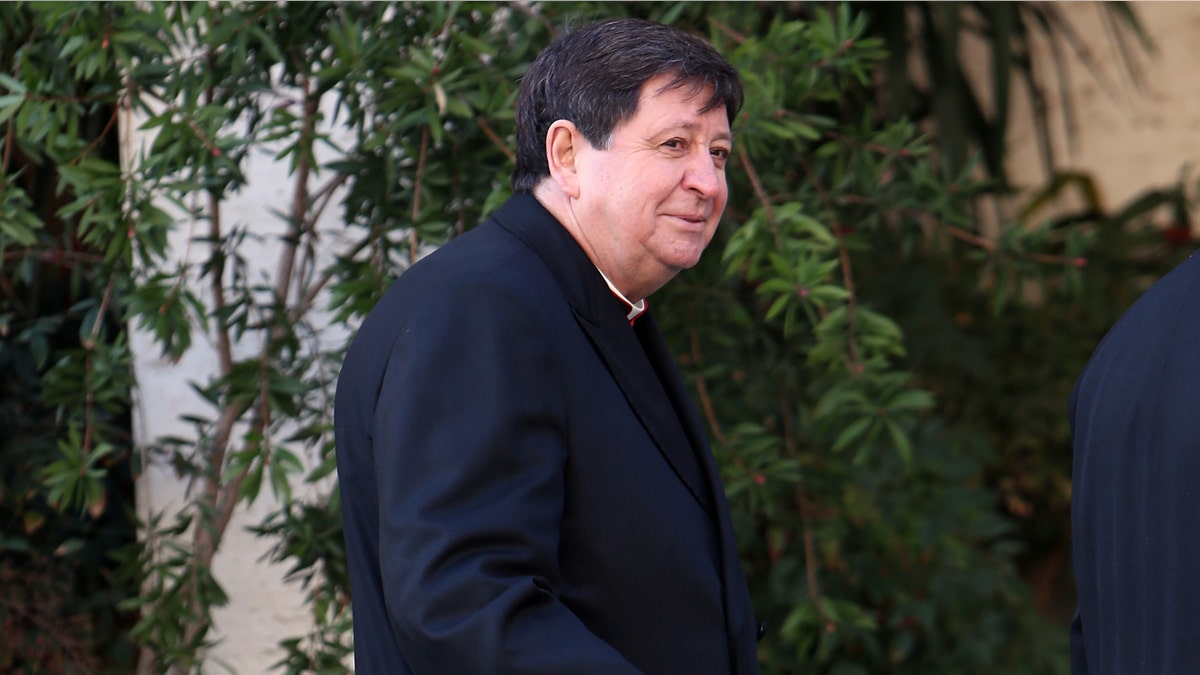
VATICAN CITY, VATICAN - MARCH 04: Brazilian cardinal Joao Braz de Aviz arrives at the Paul VI hall for the opening of the Cardinals' Congregations on March 4, 2013 in Vatican City, Vatican.The congregations of cardinals will continue until all cardinal electors have arrived in Rome, whereupon the College will decide on the start-date of the Conclave to elect a new Pope. (Photo by Franco Origlia/Getty Images) (2013 Getty Images)
Could he be the Cinderella of the Vatican?
Brázilian Cardinal João Bráz de Aviz is the head of religious congregations for the Roman Catholic Church — with an official title of Prefect of the Congregation for Institutes of Consecrated Life and Societies of Apostolic Life, a senior Vatican position.
Church goers in Brázil have long viewed the 65-year-old as one of their own, a bona fide community leader. Born on in 1947 in Mafra, Bráz de Aviz was ordained a priest in 1972 and worked his way up the educational ladder — all the way to his doctorate in dogmatic theology, which he obtained from Pontifical Lateran University.
He was ordained a bishop in 1994 and in 2002 was named Archbishop of Maringá, followed by an appointment as Archbishop of Brasília, the country’s capital. The Brázilian took the job as Prefect of the Vatican’s Congregation for Institutes of Consecrated Life and Societies of Apostolic Life at the Vatican in 2011. He was proclaimed a cardinal under Pope Benedict XVI in February of 2012.
Bráz de Aviz is the fourth Brázilian to head a Vatican department in history — each one of them has been considered a papal contender. As head of religious life, Bráz de Aviz was praised for reinvigorating the department and for rebuilding trust between the Vatican and religious orders, especially after scandals like the sexual abuse controversy that rocked the Legionaries of Christ in Mexico.
He’s praised for his push to change the way the Vatican manages its relationship with religious followers across the world through collaboration, not confrontation — a tender-loving-care philosophy.
"Every congregation, every order, in the church is like a beautiful flower," Bráz de Aviz said in a 2011 interview with the National Catholic Reporter. "Together, they make up a garden, and we have to be concerned not just with the individual flowers but with the garden as a whole."
Bráz de Aviz, known in Brázil as simply “Dom João,” grew up as one of seven siblings in southern Brázil. Like many other Latin American cardinals, he is a forceful advocate for the poor and downtrodden.
The cardinal is described as a political centrist — neither liberal nor conservative. He is someone who does not typically seek the limelight, earning him praise in church circles for his humility and modesty. But his low profile also makes him a much lesser known entity as a pope candidate — even in his home country, where his colleague Odilo Scherer, Archbishop of Sao Paulo, has received a lot more attention and, in fact, is considered one of the Latin American frontrunners.
Beyond following Catholic teachings to care for the poor, the issue hits extremely close for Bráz. He was born into poverty, growing up with four brothers and three sisters, one of whom has Down’s Syndrome, according to the National Catholic Reporter.
Perhaps growing up with sisters had a lasting influence, since a priority of his has always been to include and empower nuns within the church system.
“I want to learn from them and walk with them,” he told the National Catholic Reporter. “You have to see people up close, get to know them, what will help them overcome whatever problem there is.”
He told the magazine that his father was a butcher and they lived so far in the sticks that they traveled by horse for miles for basic services.
That kind of rough upbringing, pulling himself up from the bootstraps yet remaining a humble man of the people, some said, could still make him a great dark-horse candidate to be the next leader of the Catholic world — and the first from Latin America to fill the role.
